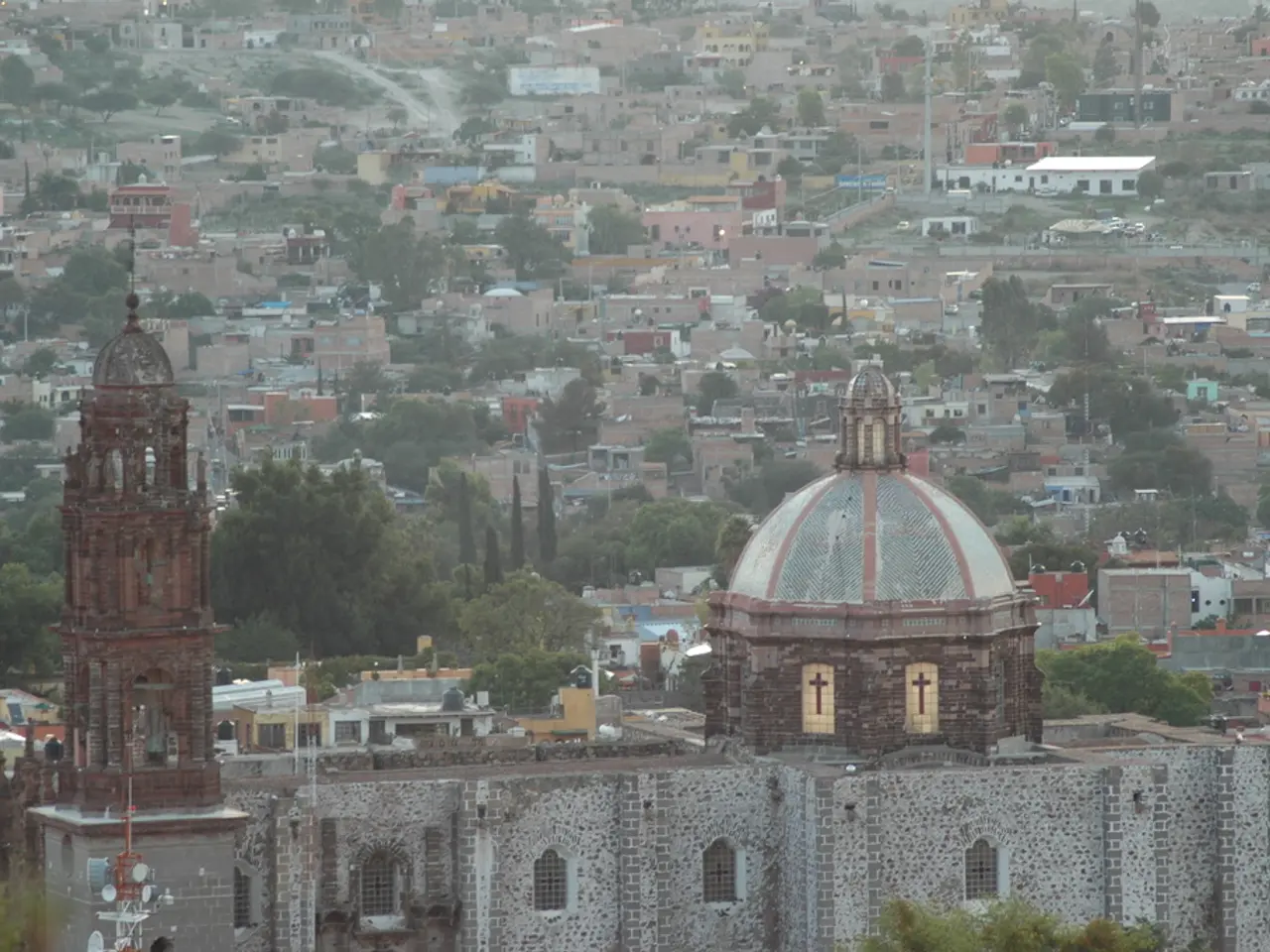Lack of Unrestricted Internal Migration Among African Nations: Explanation and Reasons
The African Union (AU) has launched an initiative to foster dialogue among nations, aiming to share best practices and address mutual concerns related to the free movement of people across the continent. However, the ratification of the AU's Protocol on Free Movement of Persons has been slow, with many African countries expressing concerns about security and the lack of harmonized border management systems [1].
The main challenges preventing ratification include persistent security fears, such as increased uncontrolled cross-border movement potentially leading to threats like trafficking, smuggling, and other transnational crimes. Member states worry about the capacity to maintain secure borders while allowing free movement [1].
Another significant hurdle is the lack of harmonized border systems. Differences in border infrastructure, customs, immigration policies, and technological systems exist across countries, making it challenging to manage efficient and secure border crossings [1][2].
Political commitment is also uneven, and collaborative mechanisms for joint action across member states and regional economic communities remain underdeveloped. A coordinated and concerted effort is required for swift ratification and implementation [1][2][4].
Building trust among citizens about the benefits of free movement and reducing xenophobic attitudes are other challenges. Raising awareness and fostering civic engagement are essential to strengthen social acceptance [2].
Aligning national laws with the continental protocol requires updating and harmonizing legal frameworks across member states—a complex and slow process [2].
Despite these challenges, some countries like Kenya have made significant progress in removing visa requirements for fellow Africans, demonstrating potential benefits such as economic integration, enhanced tourism, and cultural exchange [3].
The AU Commissioner for Health, Humanitarian Affairs and Social Development, Amma Adomaa Twum-Amoah, disagrees with the concern about losing revenue from visa fees, emphasizing that fears of financial loss due to a visa-free policy can be overstated, as evidenced by Rwanda's increase in tourist numbers and earnings from their expenditure in the country [1].
The AU continues to push for political commitment and practical solutions to overcome these barriers and achieve the ambitious goal of free movement across Africa [1][2][4]. The first session of this initiative was held in Accra, Ghana, with more planned.
The African Union's Protocol on Free Movement of Persons, aimed at giving Africans the right to live and work anywhere within the bloc, was adopted in 2018. Thirty-two other nations have signed the protocol, but only four countries - Mali, Niger, Rwanda, and Sao Tome and Principe - have ratified it so far [1]. The protocol needs at least 15 ratifications to come into force.
References: [1] African Union, (2021). African Union's Protocol on Free Movement of Persons: Challenges and Opportunities. Retrieved from https://au.int/en/news/african-union-s-protocol-free-movement-persons-challenges-and-opportunities [2] African Development Bank Group, (2019). The African Continental Free Trade Area: Opportunities and Challenges. Retrieved from https://www.afdb.org/en/knowledge/the-african-continental-free-trade-area-opportunities-and-challenges [3] United Nations Economic Commission for Africa, (2020). Progress in Implementing the African Continental Free Trade Area. Retrieved from https://www.uneca.org/sites/default/files/2020-09/Progress_in_Implementing_the_African_Continental_Free_Trade_Area_English_0.pdf [4] African Union, (2018). African Union's Protocol on Free Movement of Persons. Retrieved from https://au.int/sites/default/files/documents/37482-protocol_on_free_movement_of_persons_20180328_0.pdf
- The uneven political commitment and underdeveloped collaborative mechanisms among member states represent obstacles in the ratification of the African Union's Protocol on Free Movement of Persons, a policy-and-legislation aimed at fostering Africa-wide migration.
- In successfully achieving free movement across Africa, addressing general-news issues like building trust, reducing xenophobic attitudes, and harmonizing border systems will be critical, as these factors influence the effectiveness of migration policies.
- The progress made by countries like Kenya, such as removing visa requirements for fellow Africans, showcases how migration can lead to advantages like economic integration, enhanced tourism, and cultural exchange, thereby demonstrating that potential benefits outweigh the initial concerns about security and revenue loss.




